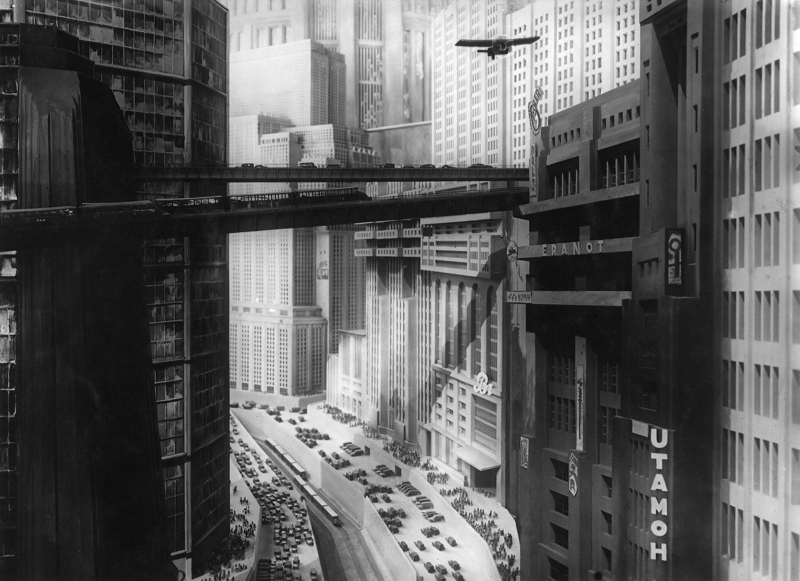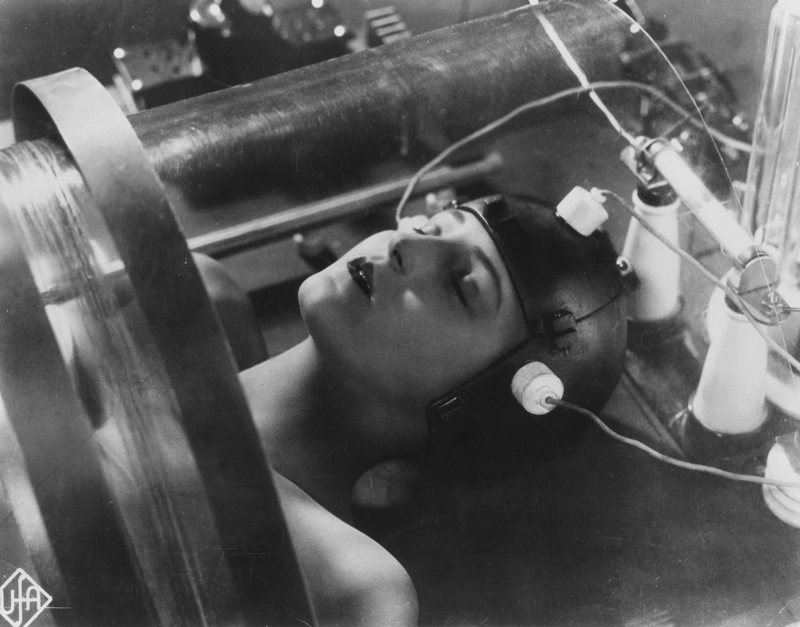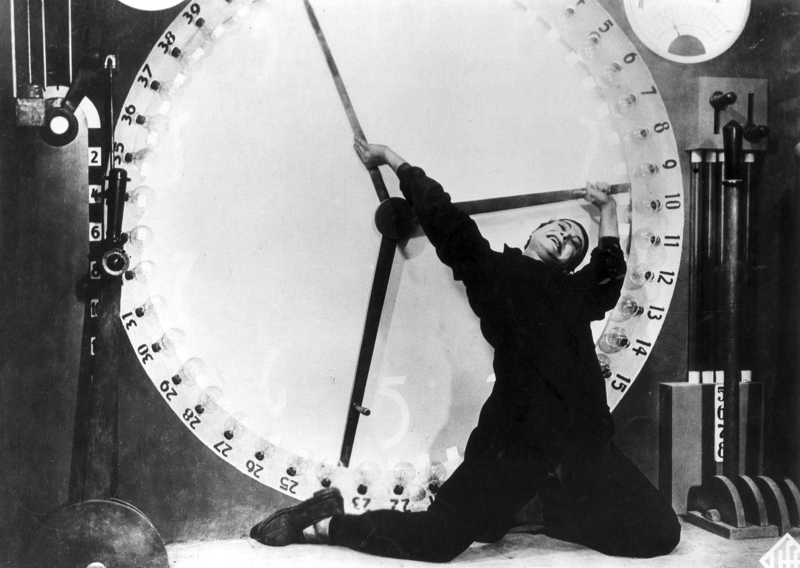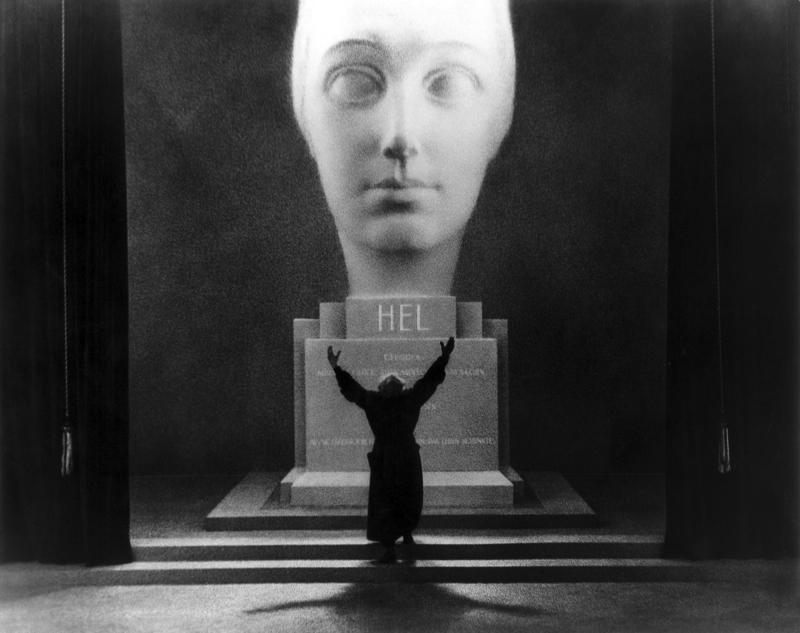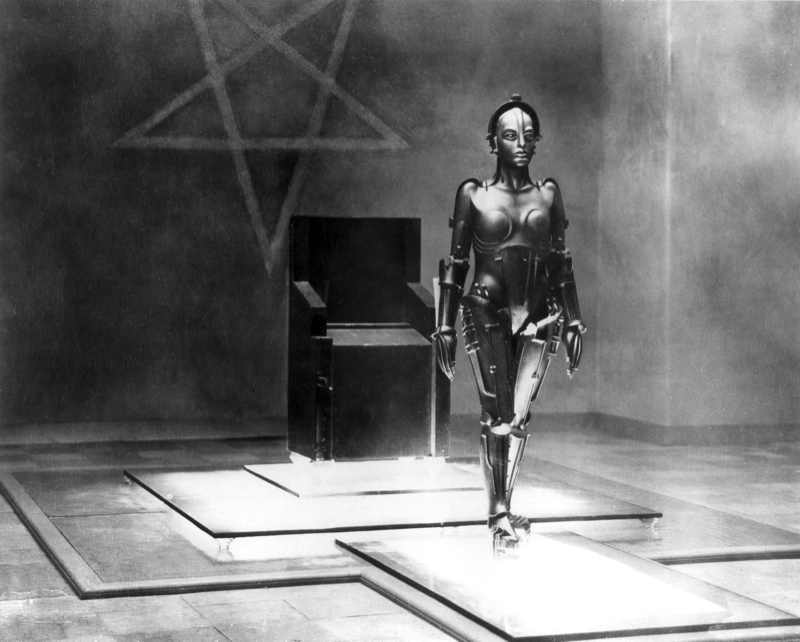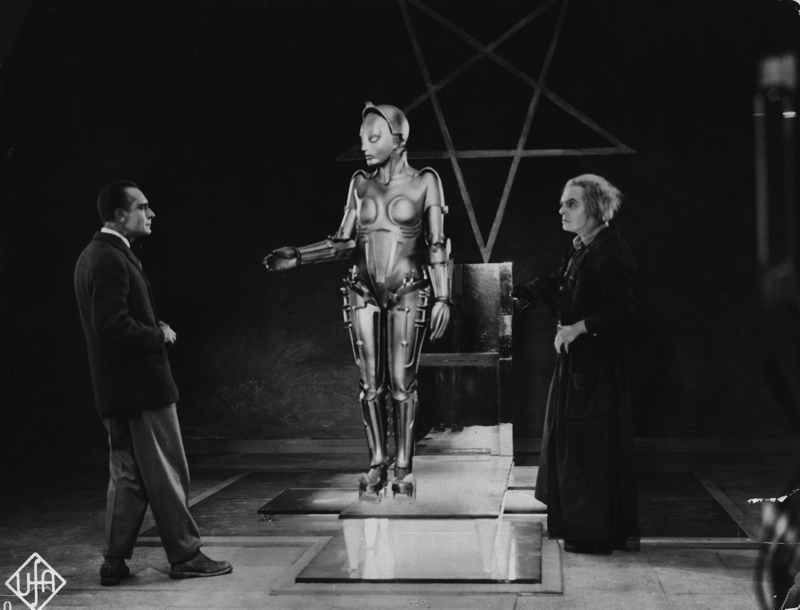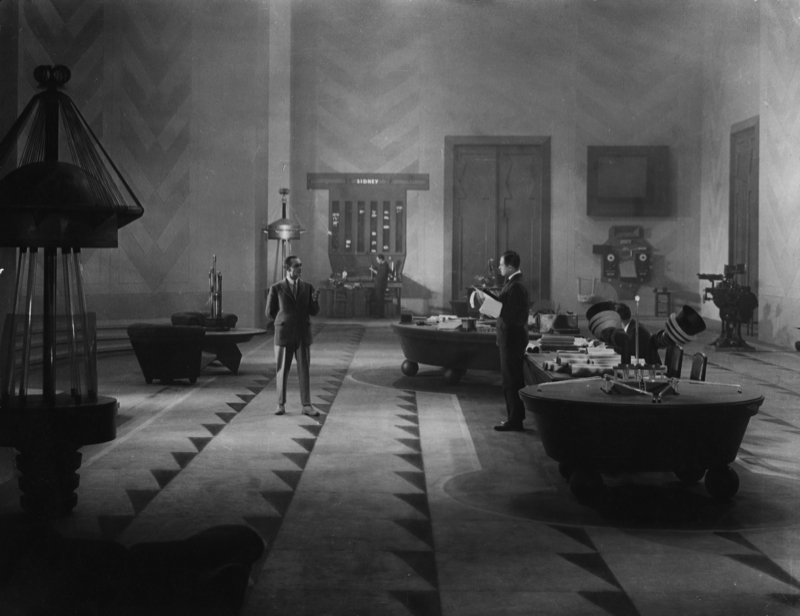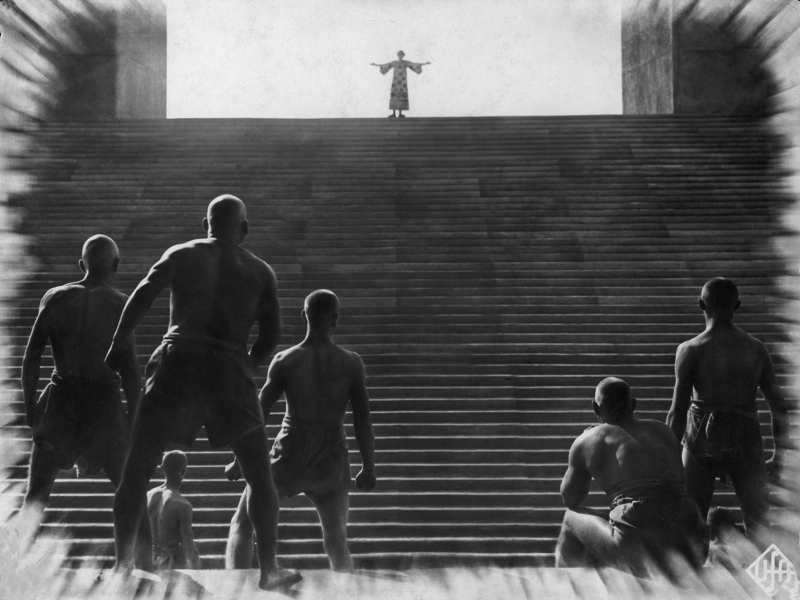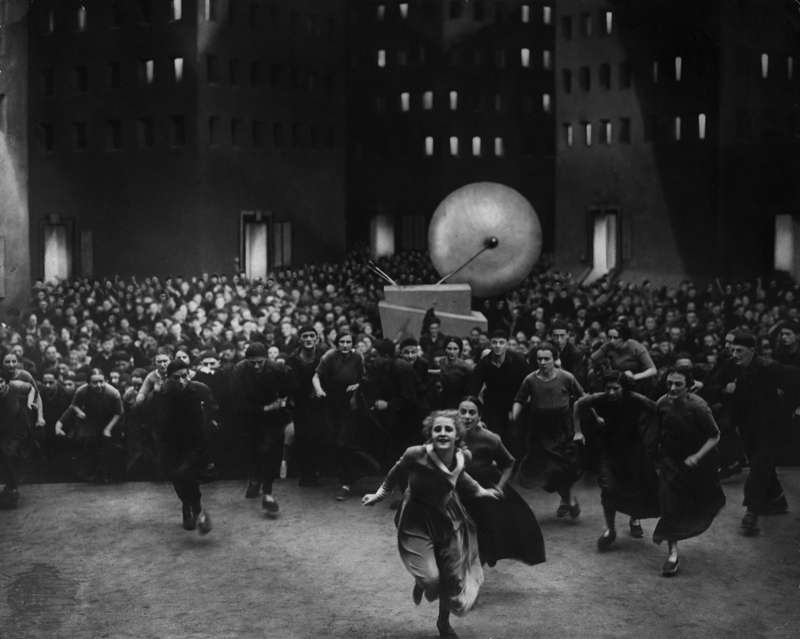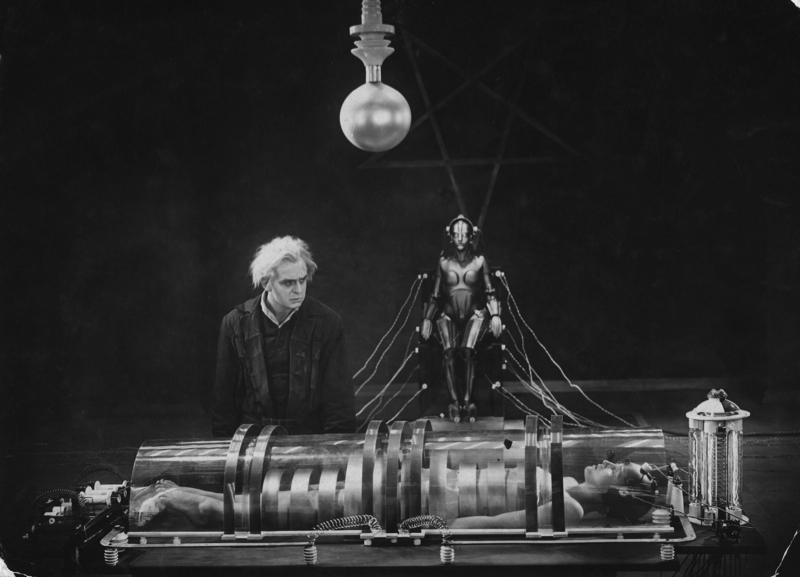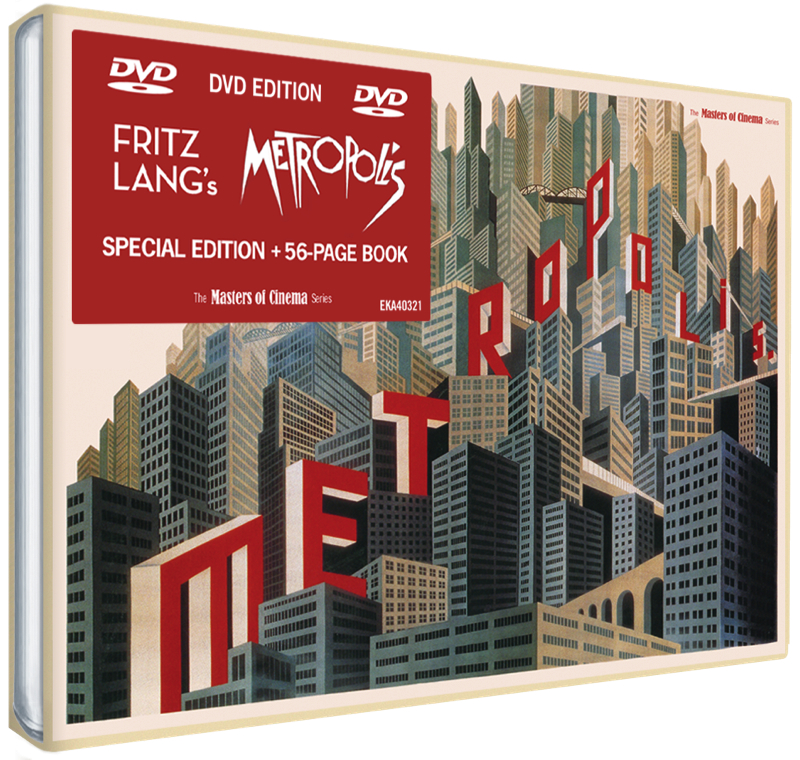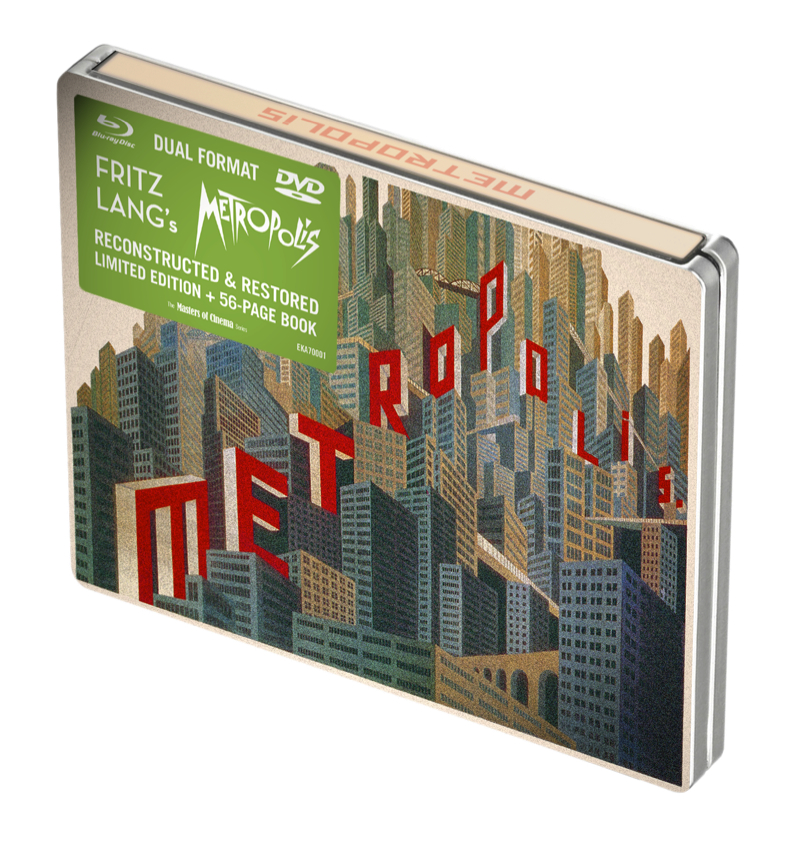There can be no understanding between the hand and the brain unless the heart acts as mediator.
How can one review one of the most essential and influential films to ever grace the silver screen? Every great critic who has seen it has had their say and I’m not sure if my two cents will make or break the film for you. Twenty five minutes were found, 81 years after the film initially premiered in theaters, never thought to be found again, in the Museo del Cine in Bueno Aires. This itself sounds like it’s all from a film, but it is reality and in turn we get a new 150 minute fully restored version of the one and only Metropolis.
The film is set in the futuristic city of Metropolis, which is separated into two classes: the planners and management who live high above in skyscrapers in luxury; and the workers who live on the ground, suffering in life. It is all overseen by a sole corporate leader, Joh Fredersen (Alfred Abel). Joh’s son Freder (Gustav Frölich) somehow ends up with the working class men below the city and witnesses a death, which moves him profoundly. With a beautiful prophetic priestess named Maria (Brigitte Helm), Freder leads the rebellion of the workers against Metropolis.
What’s interesting is that the film itself was more or less a flop in its initial 1927 run. When it was released, they edited it down to a measly 90 minutes, taking away an hour of footage, which takes away from the impact of the film. A film that has influenced sci-fi and film making in general, we might not have the look and feel of Ridley Scott’s Blade Runner or even George Lucas’ Star Wars series. It has that kind of power and still continues to influence film since its release.
Click the images to see their larger counterparts.
This is the release of the film that is exactly the way Fritz Lang had intended. It is his original vision of the film, and for that alone this release is essential viewing. But the film itself is quite amazing but you aren’t reading this for a play by play of the film. How is the package itself for this blu-ray? It’s a great presentation, where we see the heights they went to putting together the 2001 restoration and the newly found 16mm footage in 2008. Of course it’s always noticeable when the new footage is cut into the film, but it gives you a great chance to pinpoint the scenes in the film that are newly added.
With the Masters of Cinema release you get a newly translated English subtitle track (much preferred over the past versions), a new 2010 symphony orchestra studio recording of the original Gottfried Huppertz score, audio commentary by David Kalat and Jonathan Rosenbaum, the re-release trailer from 2010, Die Reise nach Metropolis (a 55 minute documentary about the making of the film) and a 56 page booklet featuring an archival article by Fritz Lang; a 1927 review by Luis Buñuel; articles by Jonathan Rosenbaum and Karen Naundorf; and restoration notes by Martin Koerber. All this comes in a great steel case.
Masters of Cinema impresses again with a release that was 83 years in the making. If you’ve seen Metropolis, you haven’t seen it this good (unless you saw the print in theaters recently). If you’ve never seen it before, there’s no time better than the present to partake in a truly moving cinematic experience. I’m not sure if you’ll look at movies the same way again after watching it.




